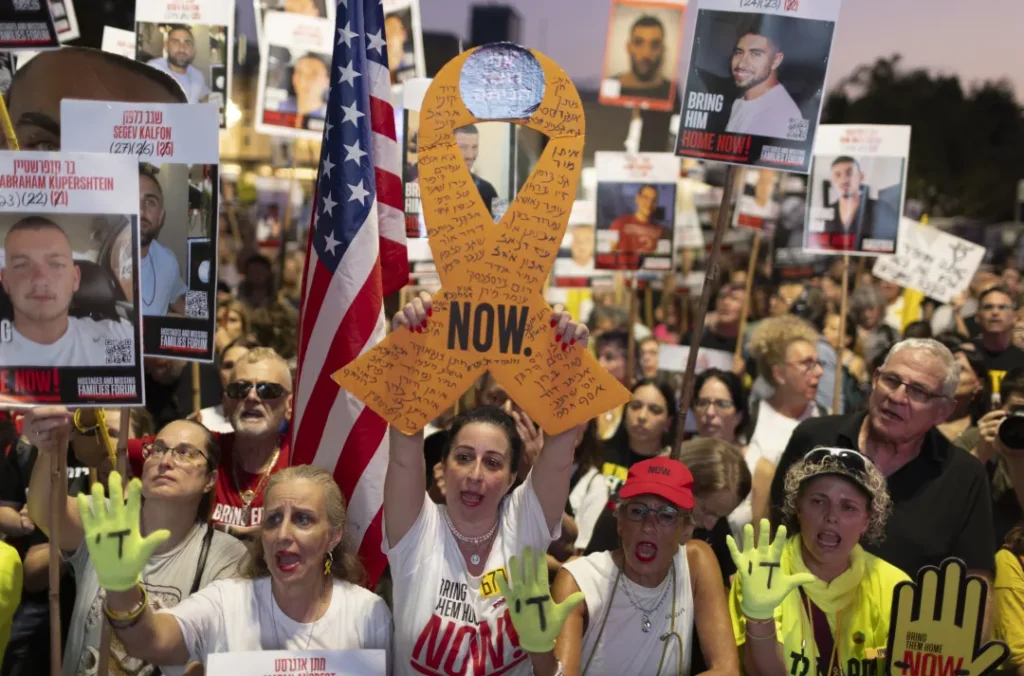TEL AVIV, August 12, 2025 — As the humanitarian crisis deepens in Gaza, new polling data reveals a stark picture of Israeli public sentiment — one marked by skepticism, detachment, and competing narratives over the root causes and realities of starvation in the besieged enclave.

According to recent surveys, a significant majority of Jewish Israelis express little personal concern about reports of widespread hunger and deprivation in Gaza. Many respondents either doubt the accuracy of these reports or believe they are exaggerated propaganda by Hamas aimed at influencing global opinion. This deep-rooted skepticism is the product of decades of conflict, repeated security crises, and a national discourse that often frames Gaza strictly as a security threat.
National Security Over Humanitarian Concerns
Public priorities in Israel remain overwhelmingly inward-focused. Opinion polls consistently show that the distress over Israeli hostages still held in Gaza, the safety of soldiers, and the security of towns near the border vastly overshadow humanitarian considerations for Palestinians.
National narratives and political messaging have reinforced the idea that any easing of the blockade or aid measures could jeopardize Israeli security. This sentiment is particularly strong among right-wing and centrist voters, who form the current electoral majority.
A Minority Voices Concern
A smaller, left-leaning segment of the public — estimated at 12% to 20% — is outspoken in condemning the humanitarian suffering in Gaza and calling for an end to the blockade. However, this viewpoint is often marginalized in mainstream political arenas and media discourse.
This minority advocates for viewing Gaza through a humanitarian lens, arguing that the ongoing policies not only harm civilians but also undermine the prospects for long-term peace and security.
Media Coverage Shapes Perception
Inside Israel, media coverage of Gaza’s humanitarian crisis is generally limited and often framed through the context of Israeli security needs. While international outlets and NGOs provide detailed reporting on fuel shortages, medical crises, and food scarcity, these narratives rarely dominate the Israeli news cycle.
The combination of minimal local coverage and entrenched mistrust of external criticism — often perceived as politically biased or antisemitic — contributes to public detachment.
Emotional Legacy of Conflict
The trauma of violent episodes, notably the October 7, 2023 attack, continues to cast a long shadow over public attitudes. For many Israelis, the memory of such violence reinforces a defensive stance, making humanitarian discussions secondary to the imperative of self-protection.
Pollsters note that this trauma-driven posture is a central reason why empathy for Gaza remains low, even as the humanitarian situation worsens.
Expert Insight: Change Is Possible
Political analysts and conflict researchers stress that while current opinion is largely hardened, it is not irreversible. Historical examples — including post-conflict reconciliation efforts abroad — show that shifts in public sentiment can occur when trusted leaders present credible and concrete peace initiatives.
Dahlia Scheindlin, an Israeli pollster, explains that without leadership willing to challenge prevailing security-first narratives, public attitudes are unlikely to soften in the near term.
Looking Ahead
As the blockade and military operations continue, the dire humanitarian reality in Gaza remains largely overshadowed by Israel’s domestic concerns. The prevailing blend of skepticism, limited empathy, and national security prioritization illustrates the formidable barriers to building public support for humanitarian relief or political compromise.
If attitudes are to change, observers say it will require both new political will and a reframing of Gaza’s crisis — not solely as a security matter, but as a shared human tragedy that demands urgent attention.







